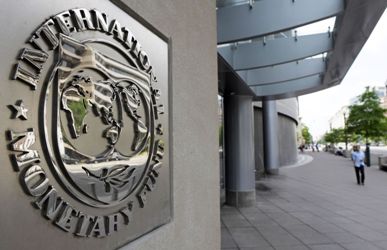IMF official downplays Sudan’s prospects for debt relief
April 9, 2013 (KHARTOUM) – The deputy director of the Middle East and Central Asia department at the International Monetary Fund (IMF) Edward Jameel today warned that it will be near impossible for Sudan to secure debt relief even if it satisfied technical and economic requirements.

He pointed out that any debt relief deal with Sudan would require the unanimous consent of all 55 countries which he suggested would be a slippery slope to climb.
“I’m not saying this is impossible but it is difficult because it is linked to political issues which requires a public relations effort with member countries” Jameel said at Sudan’s Central Bank headquarters on Tuesday.
“We have been saying very clearly that Sudan is going through a difficult time and needs to review its economy which is trapped between sanctions and debts” he added.
Jameel noted that the only reason the IMF suspended its loans to Sudan since the 1980’s is because accumulated arrears which reached $5.1 billion.
Sudan’s external debt is estimated to have grown by 27% since 2008 from $32.6 billion to $41.4 billion in 2011. The IMF forecast that the debt level will reach $43.7 billion in 2012 and $45.6 billion in 2013. The latter represents 83% of Sudan’s 2011 GDP, which was $55.1 billion.
Around three quarters of Sudan’s external debt are owed to the Paris Club of creditor nations and other non-member states. The remaining balance is equally divided between commercial banks as well as international and regional financial bodies.
Several countries such as United States, United Kingdom and Germany expressed readiness to offer debt relief but political conditions attached will likely slow down the materialization of the pledges.
Sudan’s economy was hit hard since the southern part of the country declared independence in July 2011, taking with it about 75% of the country’s oil output.
Khartoum and Juba are to sort out the issue of dividing the portion of pre-partition external debt each side will carry.
The head of Sudan’s negotiating team on post-secession issues Idris Abdel-Gader stated last month that the two countries agreed to work together to address Sudan’s debt and reach out to donors in a bid to have it written it off within two years.
Abdel-Gader added that if the exemption was not possible, then the only remaining option is to split the debt between the two countries.
(ST)
